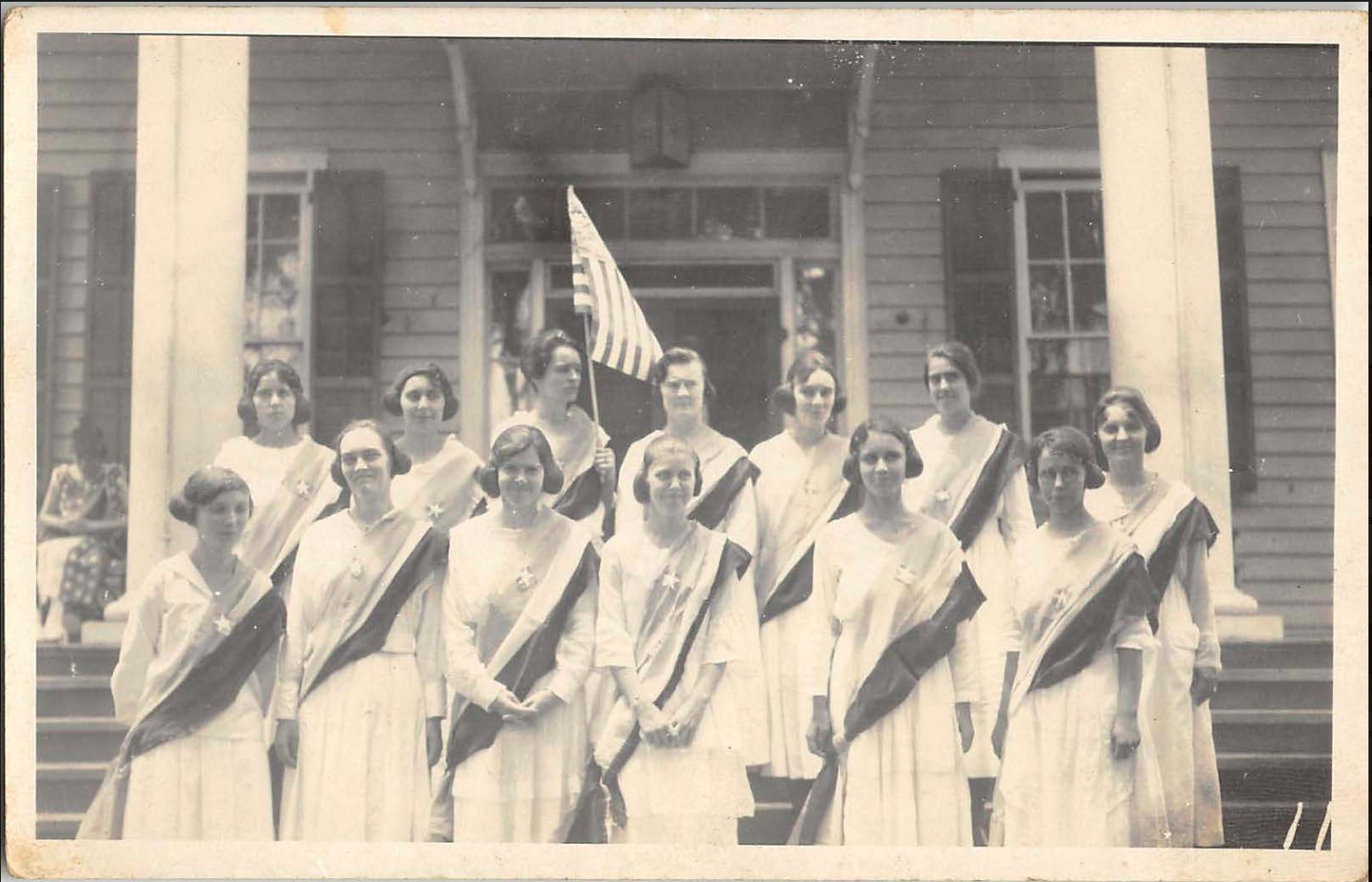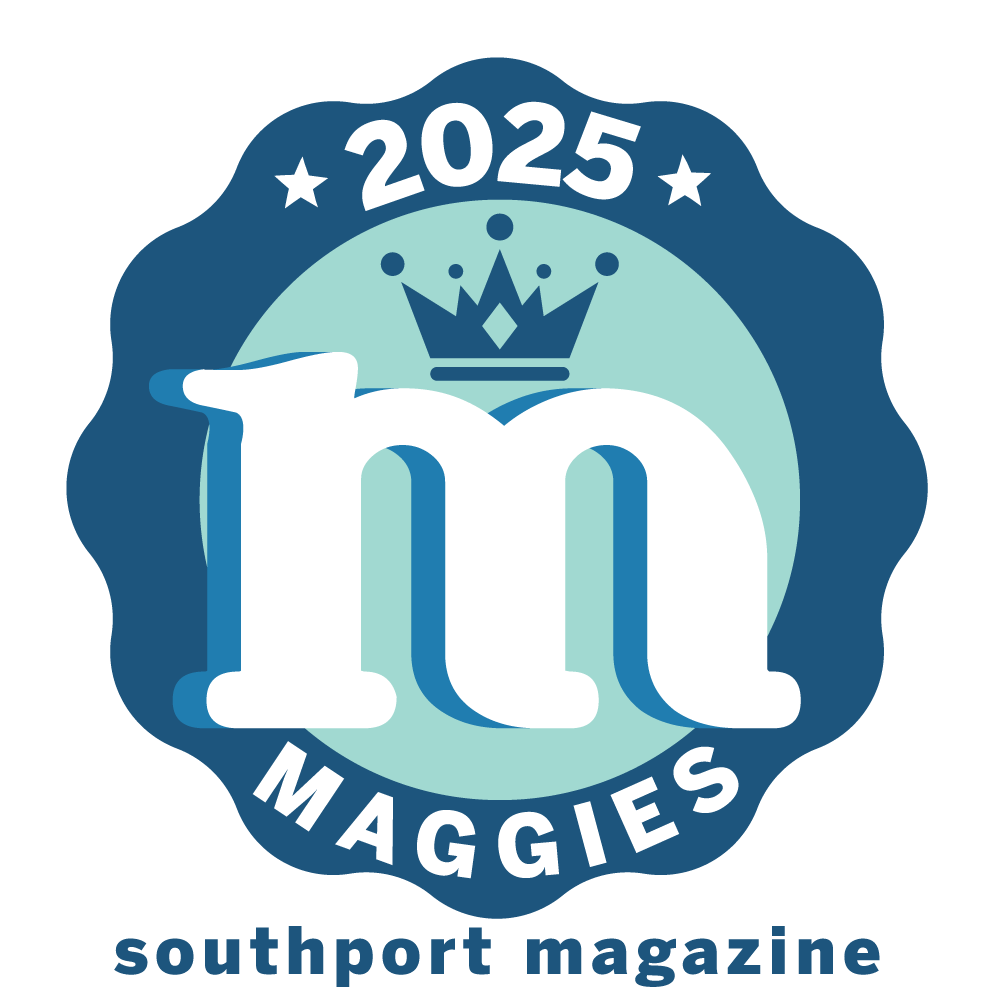Celebrating Suffrage

This year marks the 100th year since the passage of the 19th Amendment to the United States Constitution recognizing women’s right to vote on a nationwide level. The Southport Historical Society will be helping celebrate with a video tribute on July 4th at 6 pm. You can catch the video live on the Festival Committee Facebook Live feed or find it afterwards on the Society’s website, https://www.southporthistoricalsociety.org. We spoke to Southport Historical Society Vice President Liz Fuller about Southport at the time of the passage of the 19th Amendment and how local women reacted to its passage.
Can you describe the Southport of 1920 in general? What would people of today recognize? What are the biggest differences?
In 1920, Southport was the Brunswick County seat, housing the County Courthouse and the County Jail. With a population of approximately 1,600 people, it was the largest town in the county. Many residents made their living on the water. Today there is a lovely park along the river, but back then it would have been a hard-working waterfront. Menhaden fishing, in particular, was a thriving business. Strong odors from the fish factories would permeate the air when the wind was blowing inland. But the townspeople said they didn’t mind, since “that was just the smell of money.”
During the recent world war, Southport had become a military town, supporting the 1,500 troops stationed at nearby Fort Caswell. The Army-Navy club and the Amuzu Theatre were popular places of entertainment. Like the rest of the country, Southport had just endured the worldwide flu pandemic. Unlike many towns in North Carolina, Southport had very few flu-related deaths. The city attributed its good fortune to a quarantine of military personnel, a shutdown of schools and churches, a reduction in business activities, and of course, its famous salubrious breezes. Southport had endured both the war and the pandemic stone-cold sober. The city had gone dry in 1903, six years before North Carolina and 16 years before the country. Although, that’s not to say that a moonshine still or two couldn’t be found if you ventured to look.
Can you talk about the Southport Civic Club’s founding, early activities and how it changed in the early days of women’s suffrage?
The Southport Woman’s Club was originally founded in 1909 as the Southport Civic Club. At the time there was a national Woman’s Club movement throughout the United States. Despite not having the vote, women were joining together to educate themselves and to address issues in their local communities.
In Southport, women focused on improving the cleanliness and attractiveness of the city by promoting the use of trash barrels, hand-painting street signs, sewing curtains for the public school, and raising money to purchase the first street light, the first hearse, and the first benches for the Garrison lawn. They established the first library in the county, donating their own books to make up the collection. That library was the forerunner of the Harper library in Southport and the Brunswick County library system.
The women held contests that engaged the community in planting gardens, cleaning up the cemetery and raising healthy children. They were very interested in politics, even traveling together by steamship to Wilmington to hear President Taft speak. They met regularly with the Southport Mayor and aldermen to discuss their ideas and concerns. All of that was just in the first ten years of the Club’s existence!
How did Southport compare to other cities in the early 20th century as women’s suffrage was becoming a big issue?
The women of Southport didn’t march through the streets demanding the right to vote. However, when a visitor from the National Women’s Party came to the courthouse to speak about the Susan B. Anthony Amendment, it was standing-room-only with men and women in attendance. After the 19th Amendment was ratified, the Civic Club was very active in putting together a series of lectures by the Mayor and other political leaders so that women could learn about their new civic duty of voting. They also went door to door to encourage women to register to vote.
Do we know who was the first Southport woman to register to vote? Anything about her? How quickly did the women of Southport embrace suffrage?
The first woman to register to vote in Southport was also the first woman to register in all of Brunswick County. Her name was Anna Miller Davis. Her family owned and operated the popular Miller Hotel and Café in Southport. Her parents were German immigrants who had settled in Southport. After registering to vote, Anna participated in several educational programs put on for women by the Civic Club to explain their civic duty and to encourage voting. Anna’s descendants still live in Southport. In fact, Anna’s great-great-granddaughter, Evelyn Lee, participated in the Southport Historical Society’s video celebrating the 100th anniversary of women achieving the right to vote.
Can you speak to the experience of African American women in the area as women nationwide won the right to vote?
The question of African American women voting was a controversial issue in North Carolina. The rights of African American men to vote in North Carolina had effectively been taken away in 1901 with the introduction of literacy tests and the Grandfather clause. There were those who were against giving women the right to vote because they thought it would also allow African American women to vote. There were also those who were in favor of giving women the right to vote because it would help swell the numbers of white people who could vote and provide a buffer if African Americans were able to vote again.
The story of Anna Clemons of Southport illustrates the situation for African Americans in Brunswick County at that time. Anna was a courageous young woman who was very interested in pursuing her right to vote. She was a nurse who had worked with Dr. Dosher. She had also received recognition from the state of North Carolina for her work during the flu pandemic of 1918. She was a property owner, a taxpayer, and a churchgoer. According to Anna herself, she was not an “agitator or race leader.” She stayed out of trouble and she did her best to live in peace.
Anna was able to read and write. However, when she went to the courthouse to register to vote, she was turned down as not being literate enough. This was the same response received by Anna’s seven brothers, and every African American person she knew who had tried to register to vote in Brunswick County.
After being turned down by the registrar, Anna wrote to the National Woman’s Party (NWP) in Washington, DC to see if there was any way that she could register to vote by mail. The NWP told her that she would have to be patient until they could get a federal oversight bill passed that would require states to allow equal access to voting. It was another 45 years before the Equal Voting Rights Act was passed in 1965. Unfortunately, Anna did not live to see that day. She passed away in 1956 at the age of 65.
In her letters to the National Woman’s Party, Anna requested that they keep her name a secret. She was fearful of the repercussions if word got out and she was perceived as stirring up trouble. She was afraid of being the victim of a “lawless mob.” It appears Anna kept her secret well hidden throughout her life. When the Southport Historical Society learned Anna’s identity, it was a surprise to her extended family still living here in Southport.











Leave a Reply